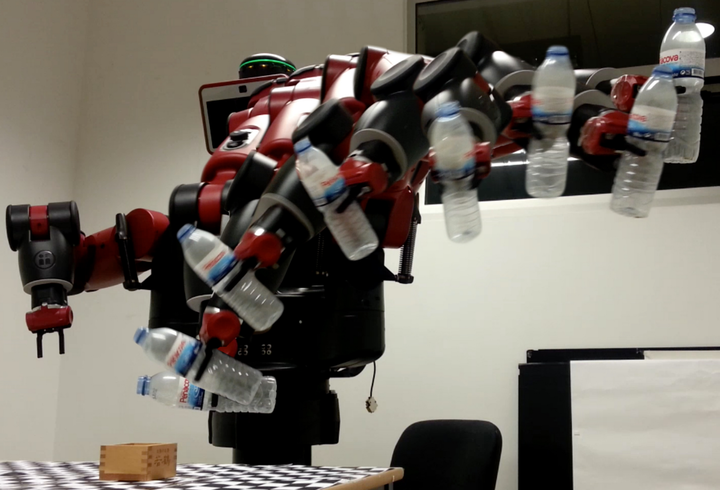Adaptive Symbiotic Collaboration for Targeted Complex Manipulation Tasks
 Robot pouring water on a sake cup, after requesting the human user to move it to a suitable place.
Robot pouring water on a sake cup, after requesting the human user to move it to a suitable place.
Abstract
This paper addresses the problem of human-robot collaboration in the context of manipulation tasks. In particular, we focus on tasks where a robot must perform some complex manipulation that is successfully completed only upon reaching some target pose provided by a human user. We propose an approach in which the robot explicitly reasons about its ability to complete the task and proactively requests the assistance of the human teammate when necessary. Our approach effectively trades-off the benefits arising from the human assistance with the cost of disturbing the user. We also propose an adaptation mechanism that enables the robot to adjust its behavior to the particular manner by which the human user responds to the requests made by the robot. We test our approach in a simple illustrative scenario and in two real interaction scenarios involving the Baxter robot.